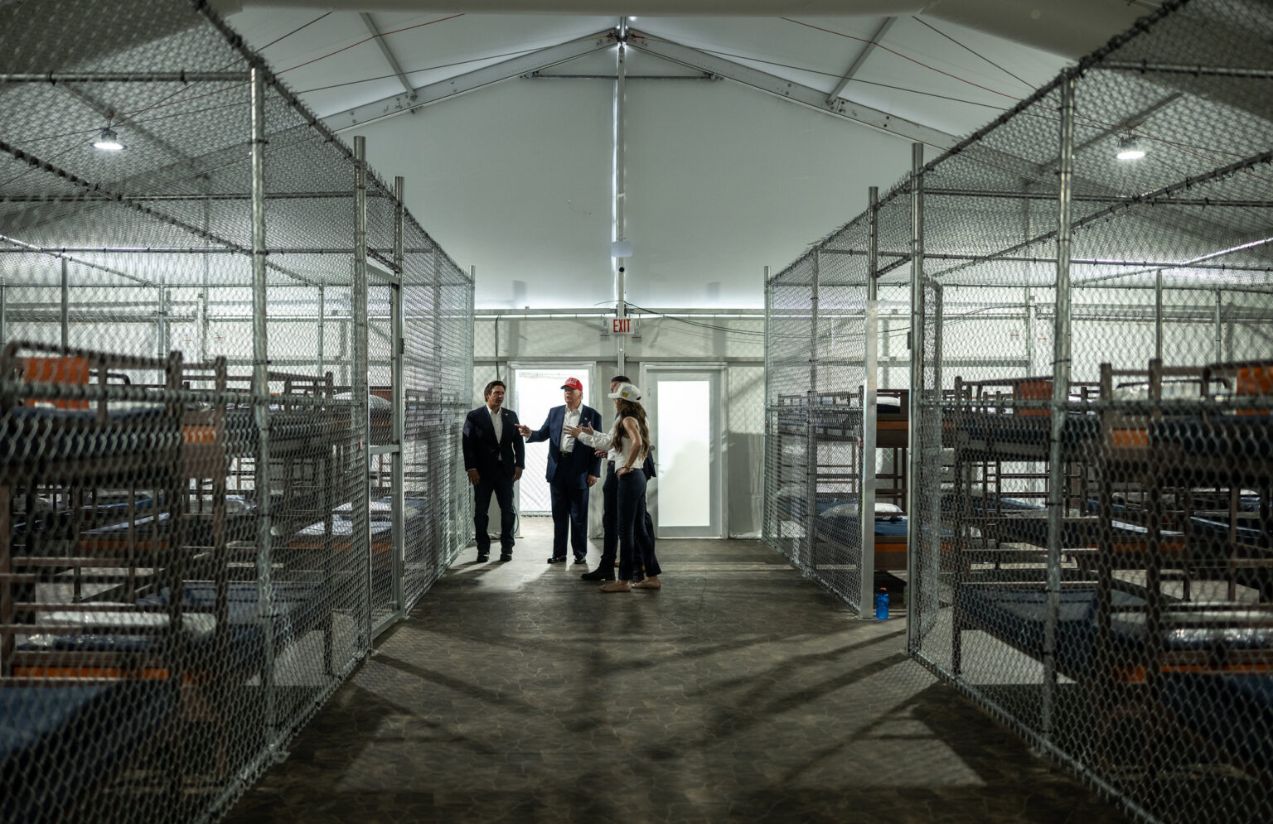Florida Governor Ron DeSantis announced on Friday the launch of deportation flights from “Alligator Alcatraz,” a temporary migrant detention center located deep in the Everglades, in the southern part of the state.
“What has been accomplished here is extraordinary,” DeSantis said during a press conference held at the facility, which is located less than 50 miles west of President Donald Trump’s resort in Miami. The center, built in just eight days, has already begun operations with several deportation flights in recent days, the governor confirmed.
With a capacity to hold around 2,000 detainees, DeSantis noted that the site can be expanded “based on demand,” as part of a broader immigration agenda that has been a political hallmark of former President Trump and now also of DeSantis’s administration.
However, conditions inside the camp have come under heavy criticism. Testimonies gathered by CNN describe overcrowding, with more than 30 people confined in wire-fence cells, limited access to bathrooms, water, and showers, as well as broken air conditioning, overflowing toilets, and tents that let in rain and insects.
One detainee described the facility as “a form of torture,” while another, speaking at a press conference this week, said it felt “like being in a dog cage.” Lawmakers who toured the site have echoed these accounts, and lawsuits have already been filed over the center’s environmental impact and the lack of legal access for those held there.
Concerns grow for detainees in Florida as hurricane evacuations loom, while DeSantis defends immigration policy
As hurricane season reaches its peak, families of those detained are increasingly worried about the weather threat. Kevin Guthrie, director of Florida’s Division of Emergency Management, warned that the facility must be evacuated if a Category 3 or stronger storm approaches. “This site can withstand winds up to Category 2,” he explained.
Despite mounting concerns, DeSantis firmly defended the operation, highlighting Florida’s leading role in immigration enforcement. “This is our moment. This is what we all campaigned for,” he said. “Florida is taking the lead among all 50 states, and I don’t think anyone else comes close to what we’ve done.”

